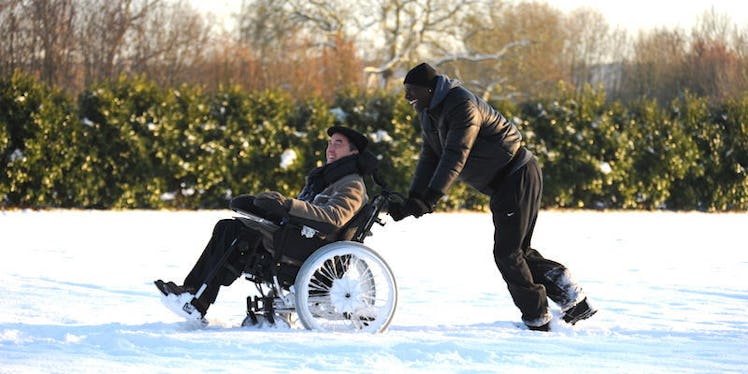
The Unique Stress That Comes With Being A 24/7 Caregiver
An individual’s innate thought is to care for the person who raised him or her, played an instrumental role in his or her life, or simply loved him or her.
If you have ever experienced any one of these scenarios in your lifetime, you’ll most likely become a caregiver at some point.
The National Alliance for Caregiving and AARP reported that in 2009, “65.7 million caregivers make up 29 percent of the US adult population providing care to someone who is ill, disabled or aged.”
This staggering percentage has only increased over the past few years, which demonstrates the dire need for caregivers in today’s world.
Being a caregiver is a rewarding task, but one must be cautious of the difficult hardships he or she may encounter on a daily basis.
The thought that constantly re-enters a caregiver’s mind is, after caring for a beloved family member, what happens when the inevitable occurs and the care recipient passes away?
Well, I’ve personally experienced both scenarios.
Alongside my mother and older sisters, I was one of four caregivers for my father while he was battling stage-four lymphoma.
To be honest, everyone copes with high-pressure situations differently, and my family was no exception.
I was a college undergrad when I found out about my father’s terminal illness. In retrospect, after fully comprehending the situation, I recall feeling numb.
My immediate response was just fear — fear for the future, that is.
Though, my sisters were fearful of the unknown as well.
They quickly decided to halt their personal lives and take sabbaticals from work to be by my father’s side to endure this tumultuous journey with him.
Though it would have been so much easier to push this entire ordeal aside and pray for a miraculous speedy recovery for my father, that wasn’t the reality of this situation. As I quickly discovered, life isn’t always a fairytale.
As a caregiver, one of the hardest struggles is always being tired. This is completely understandable; there is simply just too much responsibility on one’s plate.
At no point in time is being a caregiver an easy task.
A caregiver can’t just throw in the towel and call it quits because the moment you stop believing is the same moment when the care recipient stops fighting.
The worrisome looks and tired frowns were all visible upon my family members’ faces.
I knew it wasn’t because we didn’t want to be there to support my father, but there was just so much uncertainty that lingered in the near future.
One major responsibility of being a caregiver is that you need to be willing to work 24/7.
Looking back now, I am truly thankful that my mother and sisters were willing to alternate shifts to look after my father. I don't think I could have done it all by myself.
It is very common for a caregiver to be the only person looking after the care recipient. That being said, there are a lot of different aspects to being the sole caregiver.
When you’re not thinking about your beloved individual, you’re either dealing with a dilemma or learning something new along the way.
The Gallup Healthways Wellbeing Survey revealed:
"Caregivers reported that they spend an estimated 13 hours per month researching care services or information on disease, coordinating physician visits or managing financial matters."
Caregivers tend to lose part of themselves in order to ensure the very best treatment for their beloved individuals.
That being said, the learning curve for a caregiver is always cyclical.
You never know what to expect and you have to deal with obstacles as they are dealt your way.
Caregivers need to realize no matter how strong they appear on the outside, they’re still human, and the emotions they evoke are genuine.
While being a caregiver, you’ll probably experience just about every type of emotion: happiness, sadness and even empathy.
AARP Public Policy Institute took a poll that illustrated how, “35 percent of family caregivers view their health as fair to poor.”
The popular saying, your health is your true wealth, definitely suits this statistic quite well.
As a caregiver, it is so critical to look after yourself.
Even though you’re always taking care of the person in need, it is crucial to make sure your physical and emotional health is always up to par.
Believe it or not, sometimes letting out a good cry will make you feel so much better.
However, as a caregiver, you have to avoid lashing out at innocent bystanders because they’re only trying to assist you throughout this difficult time.
Perhaps the hardest realization for a caregiver is when he or she recognizes the memories for the care recipient are quickly disappearing.
Nobody wants his or her final memories for the person he or she cares about to be pitiful and dreary.
That’s why it is so imperative to continuously remind yourself that the person you’re caring for is the same person who shared those same heartfelt memories with you in the past.
Never allow the uncertainty of the future muddle your favorite moments with your care recipient.
Measuring success is not an easy job at all, especially as a caregiver.
Every smile you gain or joyous moment you have with your care recipient will be the best indication of how successful you truly are.
As long as you accept that you did everything in your power to care for the beloved individual in the best way possible, you are truly triumphant.
Though there will always be obstacles every day, you can’t allow the fear of the unknown dictate how much you’re going to love your care recipient.
Love is patient, love is kind.